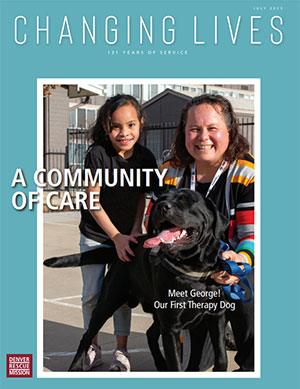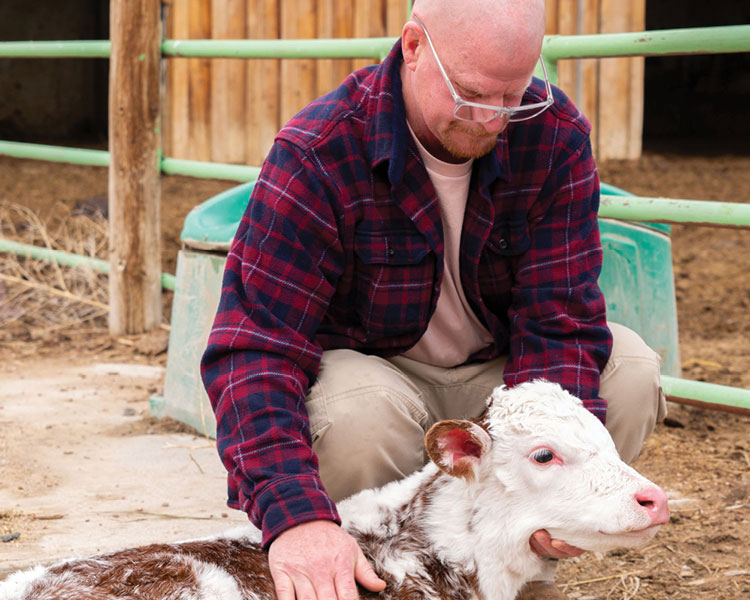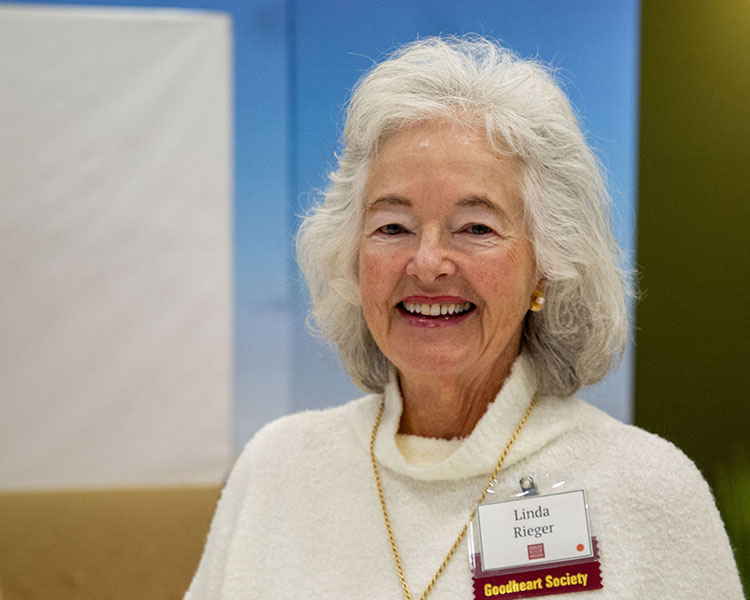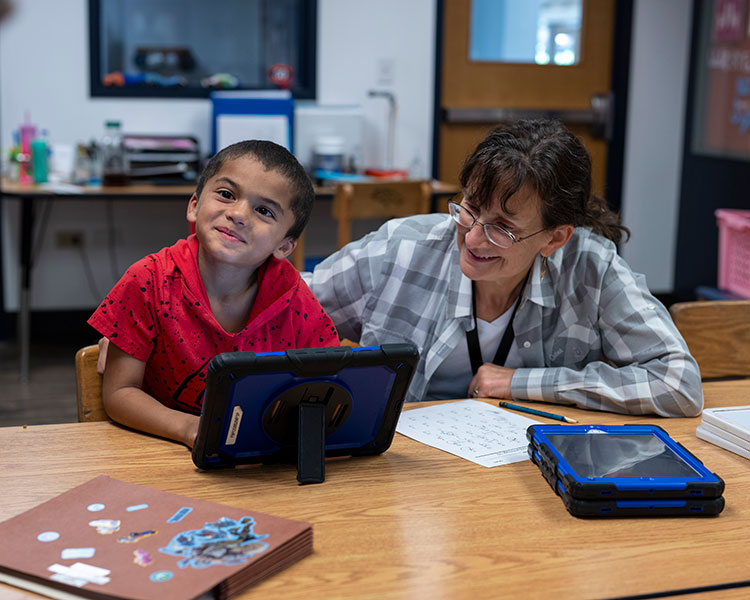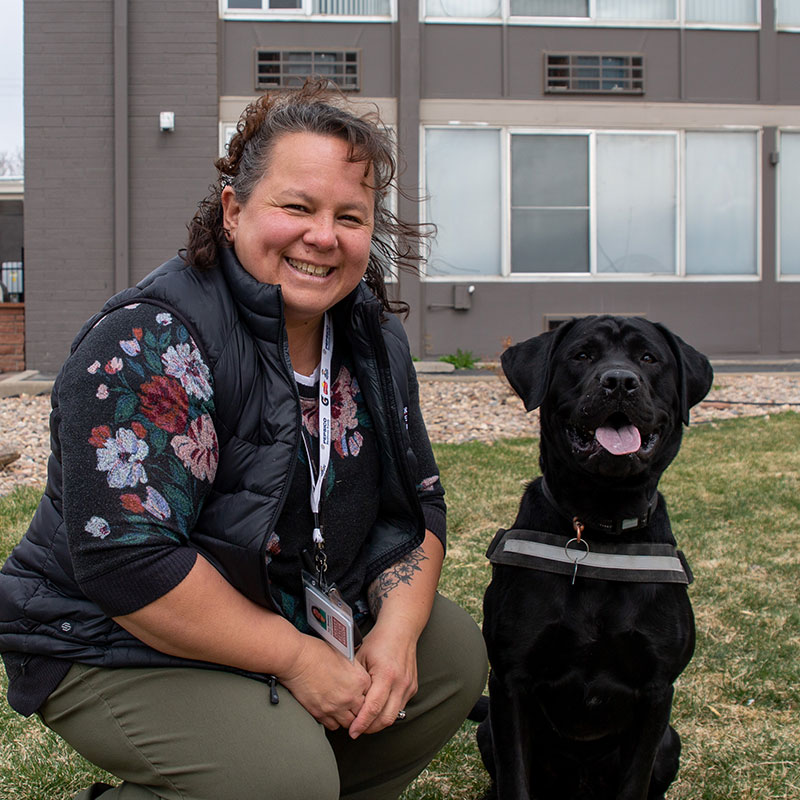
Joy & George
Joy has been a counselor at the Mission for two years. After learning about the benefits, Joy had her dog, George, begin training with Dog Training Elite as a therapy dog. George comes to The Crossing two days a week to assist Joy during sessions and to provide comfort for our participants and staff.
What impact is George having on our participants and staff?
From the beginning, George has helped with breaking down some barriers and helping people engage when maybe they would not have chosen to. Having someone or something present you with unconditional, positive regard is a powerful gift. George doesn’t know how much money you have. George doesn’t know if you have an addiction issue, but he will know if you’re in a bad mood. Sometimes he’s just pacing when I meet with people, and so I can use that as a point of discussion to ask them how they are feeling. You will also often see people’s muscles relax when petting an animal, and even being close to them is enough to potentially balance some anxiety.
What is your favorite part about bringing George to The Crossing?
A lot of times pets are the last things that people have to give up when they transition into homelessness. Many individuals who have had a difficult time sharing about their lives come out and play with George and the “flood gates” open and they start to share. Some will come by every time he’s here and they’re like, “I just look forward to these days. I know it doesn’t matter what will happen, George is here.” And there’s not a day when he’s here that I haven’t heard giggles. The majority of the giggles are coming from the guys in our New Life Program. Laughing and giggling without restraint can bring a new depth of healing that can increase hope and awaken connection with others.
How do you see the use of therapy dogs evolving at the Mission?
Potentially having another dog here to help cover all the days of the week, and to have dogs available at the shelters. I think that might be where the relationship with Dog Training Elite can be expanded. It will definitely lay the foundation for using dogs in ways that we, the Mission, have not even attempted. Another goal is to allow George to be more of an active participant in our youth programming. The connections and changes we see in adults are just as evident and powerful in our youth. I have seen increased communication and emotional management in some of the youth who George has been building relationships with.
This post is part of July’s Changing Lives Newsletter. This month, we’re sharing our approach to trauma-informed care in: A Community of Care.
